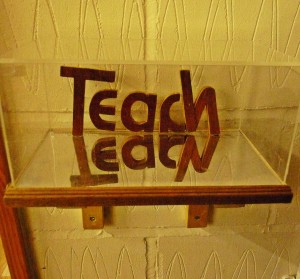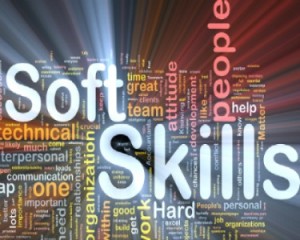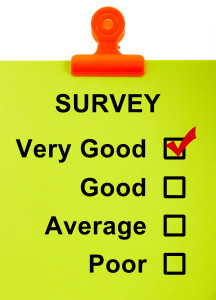The Right Mix of Soft Skills + Hard Skills
One of the biggest challenges facing companies today is the skills gap. Is this gap limited to a short supply of technical skills? Accounting? Law? Technology? Architecture? Manufacturing? Construction? Industry Management? Etc.? Absolutely not. Employers have been complaining for years that there are far too many candidates with limited and inadequate interpersonal skills, too.
The modern workplace has increasingly developed a relational dynamic that can’t be ignored. BOTH hard skills (technical) and soft skills (non-technical) are mandatory because they each play different and very important roles. Hard skills – on their own – no longer cut it.
We have all heard and read about how business is becoming more focused on Emotional Quotient/Intelligence (EQ / EI) instead of the traditional IQ focus. Yes, a high IQ is important, however it becomes much more desirable when it is complemented by skills such as listening, presenting ideas, negotiation, resolving conflict and understanding how to build and maintain relationships with people.
 The low down on Hard Skills
The low down on Hard Skills
Hard skills are related to professional knowledge, tools and techniques –those skills related to a profession. Hard skills tend to be specific, teachable, based on facts and job specifics. They are generally easy to qualify and quantify. Some examples would be nursing, dentistry, medicine, engineering, law, various technology functions, foreign languages, music, research, trades people and roles that require some form of subject matter expertise. Hard skills provide credentials, but there’s more to employment than simply knowing “how” to do a job. To conclude, hard skills are cognitive or technical skills that are taught.
Photo credit: Ian Boyd Flickr
Hard skills may be the first thing that grabs the attention of a hiring manager when a resume is reviewed. It may be the hard skills that that initiates the invitation for an interview. Once the candidate is in the door, it will take much more than just technical skills to secure a job offer – and ultimately advance a career. Yes, hard skills are important so make sure the soft skills make them shine.
The good news is that because hard skills are learned, they can also be easily improved, upgraded and mastered. Some people may return to school to further their education, take night classes or online courses, self-study by reading books or working as an understudy / apprentice. In many professions it is the hard skills that are the basic minimum necessity to operate in a particular workplace.
What about Soft Skills?
Soft skills are about behavior. These skills are subjective and not easily measured. Soft skills (or the lack of) create feelings, produce reactions, build relationships, deal with conflict and solve problems. They are not tangible. Often this term is swapped with phrases such as ‘people skills’, ‘interpersonal skills’, ‘social skills’ and ‘transferable skills’ – in other words, skills that characterize how one relates to others when approaching life and work.
Soft skills, and the subset social graces, are vital to businesses where customer care, personal attention and face-to-face human interaction are central to the business model. It is the soft skills that ultimately determine how successful can, will become in their chosen career.
Soft skills are actually much more important than most people realize. In many organizations today, managers are prioritizing soft skills and placing them on a higher level than other job-related competencies. In particular, the smaller the organization, the more impact social skills have on the bottom line of the business.
What makes soft skills so valuable?
 Soft skills are broader, and arguably, much more critical in both life and business than hard skills. If one was to spend a couple of days in any organization, it is fairly easy to identify which employees are in short supply of communication and people skills. Studies have shown that minimal or inadequate soft skills are at the root of many issues in a business. When deficient, soft skills are what prevents or compromises an organization’s ability to successfully create positive attitudes in the interactions with clients, customers, colleagues, supervisors, vendors and other stakeholders.
Soft skills are broader, and arguably, much more critical in both life and business than hard skills. If one was to spend a couple of days in any organization, it is fairly easy to identify which employees are in short supply of communication and people skills. Studies have shown that minimal or inadequate soft skills are at the root of many issues in a business. When deficient, soft skills are what prevents or compromises an organization’s ability to successfully create positive attitudes in the interactions with clients, customers, colleagues, supervisors, vendors and other stakeholders.
Even in the most basic of circumstances, soft skills create the fundamental “fit” in a company. In work (and play) qualities such as personality traits, personal habits, openness, being approachable and optimism all lead to producing greater success for an individual. These personal ‘tools’ make the difference between just doing the work and being successful (and promotable) in one’s work.
Soft skills at their best
It is never enough to be “the one with the brilliant idea” if that idea cannot be effectively communicated. Knowing how to approach the right people and solicit the appropriate support is how to get an idea implemented. At the same time, it is not enough to just work hard. Unless hard work is ‘realized’ and noticed, it really doesn’t count for much. The fine art of subtle self-promotion is how one ensures their hard work is recognized and appreciated. Hard work alone does not guarantee success.
An example that clearly demonstrates soft skills at their very best is when considering the relationship you choose to build with your doctor. When there is the right mix of social and technical skills, the result is trust, comfort and reduced anxiety. Most people expect their doctor to possess the required education, credentials, and technical expertise to do their job but without the finer social skills, a true comfort level may never be fully attained.
 Question – Why would one choose to continue seeing the same doctor when there is no threat of a hard skills shortage? (for this scenario we will assume that a very serious health issue is not present) Is enough time spent to answer questions and manage concerns? Is the communication and language used understandable? Can one sense a feeling of empathy? Is problem solving evident? It is the ‘obvious’ demonstration of soft skills that builds confidence, comfort and trust. This is what we commonly refer to in the medical profession as “bedside manner”.
Question – Why would one choose to continue seeing the same doctor when there is no threat of a hard skills shortage? (for this scenario we will assume that a very serious health issue is not present) Is enough time spent to answer questions and manage concerns? Is the communication and language used understandable? Can one sense a feeling of empathy? Is problem solving evident? It is the ‘obvious’ demonstration of soft skills that builds confidence, comfort and trust. This is what we commonly refer to in the medical profession as “bedside manner”.
When soft skills are blended with hard skills, the overall success factor of an individual is dramatically impacted. Yes, some doctors may approach their profession exclusively using their hard skills in science and still have patients – but when push comes to shove, what kind of doctor do you want? The odds are very high that a ‘good’ doctor will always win out over the best technical physician.
In Summary
Gaps and shortages in all skills are not going away. Universities, colleges, trade schools and other training institutions will continue to turn out hard skills to the marketplace – and hopefully in quantities that match demand.
It is the shortage of developed soft skills that are the real challenge and irritant for employers today. A recent study showed that 61% of hiring managers surveyed felt that soft skills were more important in new hires than hard skills. The same study showed that the top three characteristics managers looked for when making the decision to promote people was the ability to prioritize work (87%), a positive attitude (86%), and teamwork skills (86%).
A shortage of soft skills potentially leads to –
- Increased operating costs
- Diminished competitiveness and profitability
- Increased workload on other employees
- Difficulty meeting quality standards
- Difficulty introducing new working practices
- Delays in introducing new products or services
“In determining the right people, the good-to-great companies placed greater weight on character attributes than on specific educational background, practical skills, specialized knowledge, or work experience.”
~ Jim Collins, author of “Good to Great”, “Built to Last”, “How the Mighty Fall” and “Great by Choice”
Stay tuned next week for the second blog in a three part series on Soft & Hard Skills

